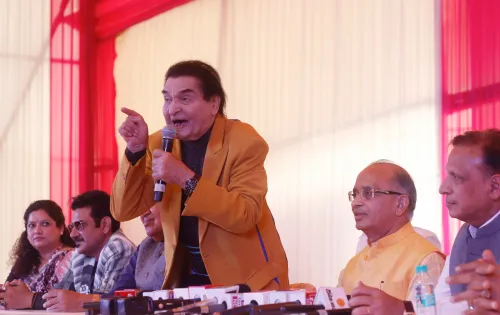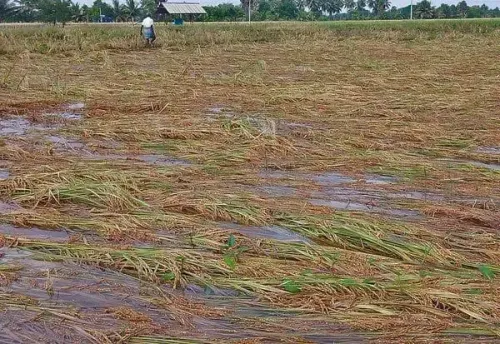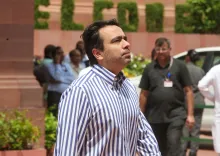What Does the Rotten Meat Scandal in Kashmir Mean for Accountability?

Synopsis
Key Takeaways
- Over 3,500 kg of confiscated rotten meat raises health alarms.
- Public trust has been severely compromised by this scandal.
- Mirwaiz Umar Farooq calls for immediate accountability and ethical reflection.
- Authorities are conducting inspections to prevent such incidents.
- Community concerns about meat origins and safety are increasing.
Srinagar, Aug 8 (NationPress) Senior religious and separatist figure, Mirwaiz Umar Farooq, voiced his astonishment on Friday regarding the recently uncovered rotten meat scandal in Kashmir, urging for both accountability and ethical reflection.
While delivering his Friday sermon at the Jamia Masjid in Nowhatta, Mirwaiz expressed deep concern over the alarming discovery that over 3,500 kg of rotten, unlabelled, and potentially illegal meat had been confiscated by the Food and Drugs Administration (FDA) from various sites across Kashmir.
He condemned the act of supplying the public with 'haram' or harmful food, labeling it as 'Zulm' (grave injustice).
Such conduct represents a breach of public trust and flouts divine laws, societal agreements, and legal standards, he asserted.
Mirwaiz demanded that those responsible be held fully accountable and face immediate legal repercussions.
"This incident has severely shaken public confidence. It is shocking that such extensive malfeasance was allowed to persist unchallenged for this long, raising serious concerns about the effectiveness of regulatory bodies. Where was the administration during this time? How could this go unnoticed?"
He further stated, "We are uncertain of the duration of this malpractice, but its magnitude points to a significant and troubling lapse in oversight."
He urged the state government to act swiftly and decisively, insisting that no packaged meat should be available in markets without comprehensive and mandatory labelling, confirmed cold storage information, and halal certification.
Mirwaiz raised alarms regarding the nature of the confiscated meat, questioning whether it came from permissible animals or, worse still, carrion, which is strictly forbidden in Islam.
"These actions are not just health infractions; they challenge our religious boundaries and the collective values of our community. As we seek accountability from authorities, this incident serves as a wake-up call for us as individuals and as a society," he proclaimed.
"It has exposed the moral and ethical decay within our community, where greed and profit have become the dominant motivations, even leading to such deplorable actions," the chief cleric of Kashmir remarked.
Authorities have initiated a proactive campaign to inspect wholesale and retail outlets, along with hotels, restaurants, and roadside eateries, to ensure that rotten meat is not sold or distributed anywhere.









